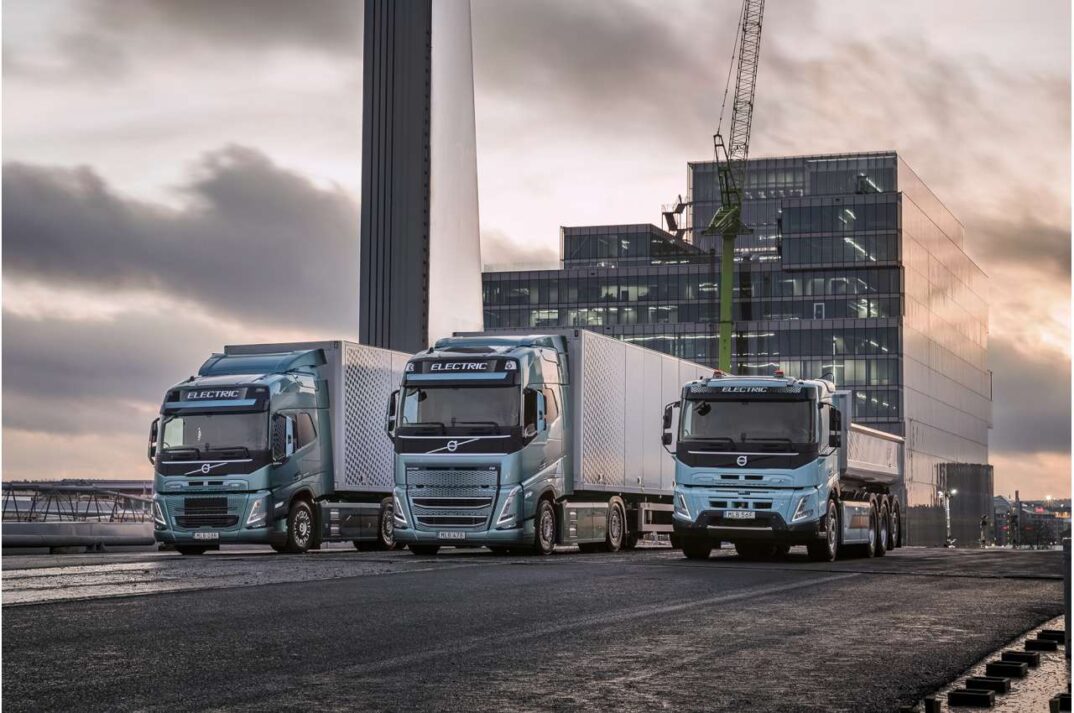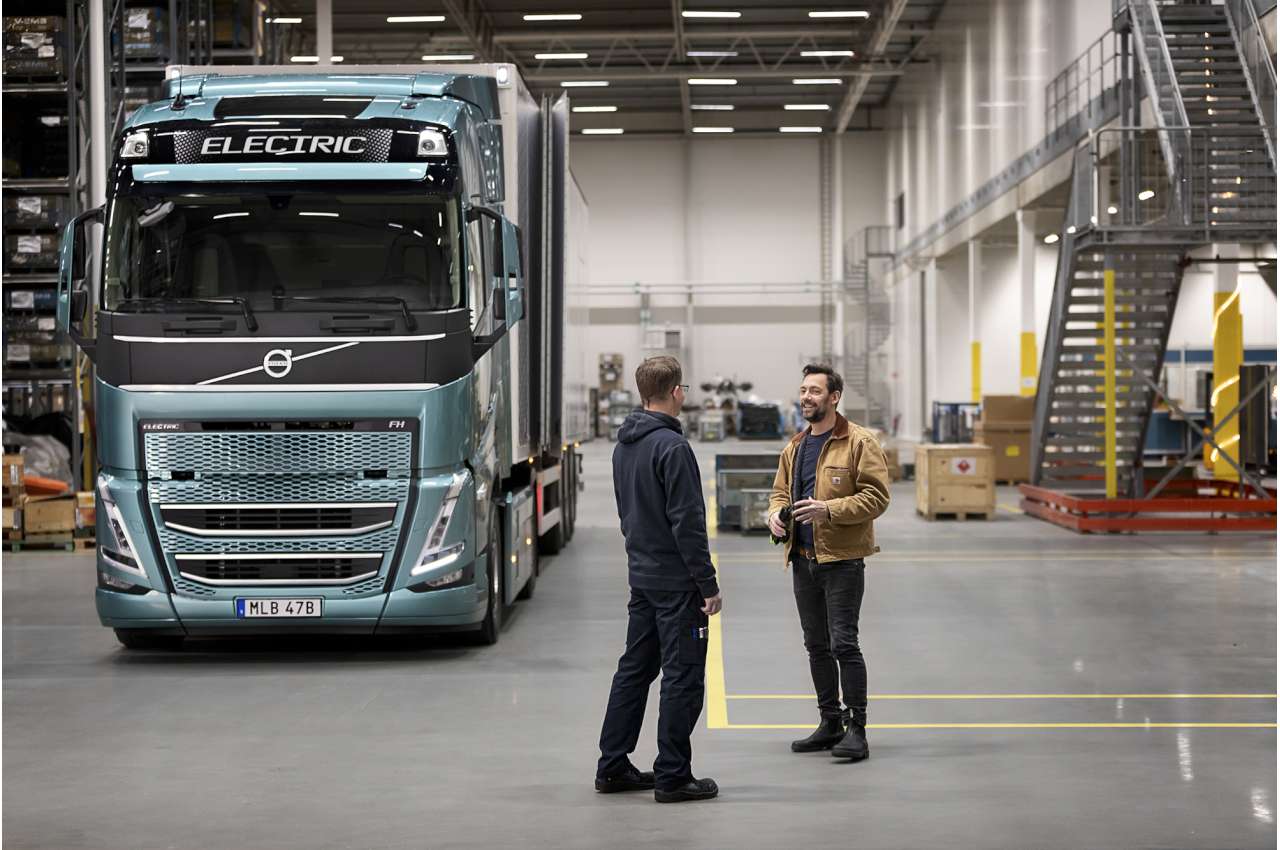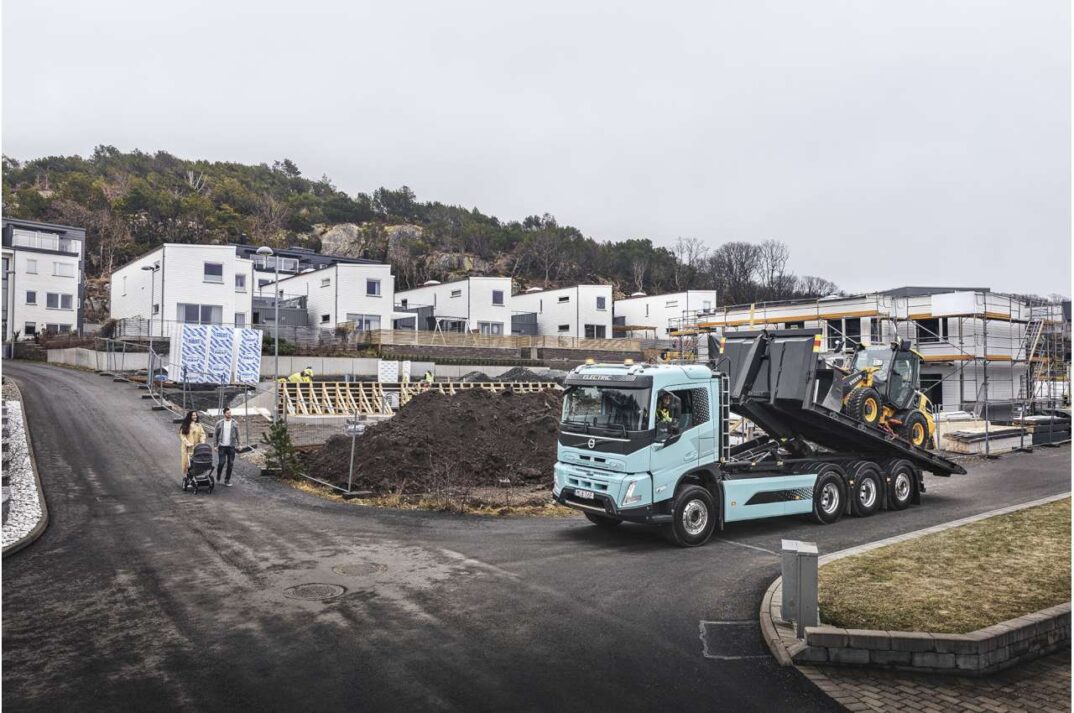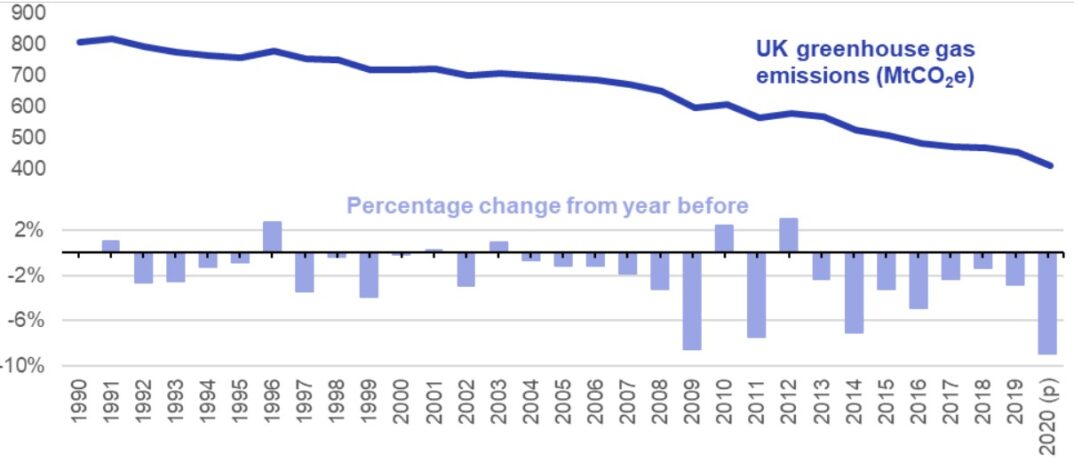Our roads are set to become much cleaner and quieter as Volvo Trucks start their sales of heavy-duty trucks for delivery next year.
With the major industrialised countries becoming more focused on their emission targets, and vying to be the greenest, reducing emissions from road transport could have a significant effect on our environment. At the recent Earth Day summit, BoJo announced that our CO2 levels will be reduced by 78% by 2030 compared to 1990 levels.
They were already down by 45% in 2018 and this was before the 2020 lockdown reducing emission further. This means that we are well on the way, although there is still plenty more to do, as much of the emission reduction low-hanging fruit has been taken already.
In launching their new FH, FM and FMX electric ranges, Volvo are hoping that large diesel engine trucks become the next low-hanging fruits.
The company has been selling the middleweight FE and FL electric since 2019, but the leap into heavyweight 44 tonne operation for regional transport marks a new era for battery powered trucks.
Will Electric Trucks make a Difference?
It is true that there are a lot more cars on our roads than heavy trucks, but the issue with electric cars is that most of them do not get used to their maximum potential. The environmental footprint to make a battery vehicle is larger than that of a standard diesel or petrol engine, thanks in the main to the batteries and the production process that goes into making them.
For car owners to have an electric car to potter to the shops once a week has more of an impact on global emissions than keeping the old petrol car for the same job.
Trucks, however, have to be worked and worked hard for their owners to recoup their investment. This means that the impact of their production footprint will soon disappear into relative insignificance thanks to their typical duty cycle.
The Time is Right
With sales starting this year of three new heavy-duty all-electric models, Volvo Trucks believes the time is right for a rapid upswing in electrification of heavy road transport.
This positive outlook is based on Volvo’s electric trucks’ ability to meet a broad variety of transport needs. In the EU for example, almost half of all truck transport can be electrified already as Volvo inform us that 45% of all goods transported on road in Europe travelled a distance of less than 300 km.

Large national and international operators are showing strong interest in electric vehicles. This is being driven by their own ambitious climate goals, as well as consumers’ demand for decarbonisation and cleaner transport solutions.
“More and more transport companies are realising they need to start their electrification journey right now, both with the environment in mind and for competitive reasons to satisfy customer requirements for sustainable shipping. With Volvo Trucks’ wide and deep offering, it is totally feasible for far more transport companies to go electric,” says Roger Alm, President of Volvo Trucks.


Adding three more heavy-duty trucks to the electric line-up
With sales starting of the new electric Volvo FH and FM models, electrified transport is now possible not only for urban areas but also for regional traffic between cities. In addition, the new electric Volvo FMX model is creating new ways to make construction transport operations both quieter and cleaner.
Production of the new electric models for Europe will start next year. They join the Volvo FL Electric and Volvo FE Electric for urban transport that have been in serial production since 2019. With the new models, Volvo Trucks currently has a line-up of six medium and heavy-duty electric trucks, which makes it the most complete commercial electric truck range in the industry.
Covering nearly half of EU transport needs
With the addition of the new products with higher load capacities, more powerful drivelines and range of up to 300 km, Volvo Trucks’ electric portfolio can cover around 45% of all goods transported in Europe today*. This makes it possible to offer an important contribution to lower the climate impact from road freight, which according to official statistics account for about 6% of total CO2 emissions in the EU.
“There is huge potential to electrify truck transports in Europe, and also in other parts of the world, in the very near future,” says Alm. “To prove this, we have set the ambitious goal to have electric trucks account for at least half of our sales in Europe by 2030. And these three new heavy-duty trucks we are now launching mark a giant step towards reaching this target.”

Broad offering of electric solutions
In addition to the electric vehicles, Volvo Trucks’ electrification programme includes a complete eco-system with numerous service, maintenance and financing solutions, as well as other options that can help facilitate an easier and faster transition to electrified traffic. The holistic setup helps customers stay productive and in control of their new electric transport fleet.
“These complete electrified transport solutions that we, along with our global network of dealers and service workshops can provide, will play a vital role in ensuring our customers’ success,” adds Alm.
Hydrogen fuel cell electric trucks coming next
Looking further ahead, even long-distance heavy transport will be able to be completed with electric vehicles. To meet these challenging demands for both high load capacity and a much longer range, Volvo Trucks plans to use hydrogen fuel cells to generate the electricity.
“This technology is developing rapidly and our ambition is also to make the long driving distances electrified, using both batteries and fuel cells,” Alm states.
“Our aim is to start selling fuel-cell electric trucks in the second part of this decade and we are confident we can make this happen.”
Volvo Trucks’ electric vehicle offering for Europe
Models:
- Volvo FH Electric, for regional and intercity transport.
- Volvo FM Electric, a versatile truck for heavy local transport and regional distribution.
- Volvo FMX Electric, for cleaner and quieter construction transport.
- Volvo FE Electric, for local and city distribution, waste transport.
- Volvo FL Electric, for local and city distribution.
Technical facts:
- Volvo FH, FM and FMX Electric: Range up to 300 km. Continuous power 490 kW. Max torque 2400 Nm. Battery capacity up to 540 kWh. Gross combination weight (GCW) up to 44 tonnes.
- Volvo FE Electric: Range up to 200 km. Continuous power 330 kW. Max torque up to 850 Nm. Battery capacity up to 264 kWh. Gross combination weight (GCW) 27 tonnes.
- Volvo FL Electric: Range up to 300 km. Continuous power 165 kW. Max torque up to 425 Nm. Battery capacity up to 396 kWh. Gross combination weight (GCW) 16 tonnes.

